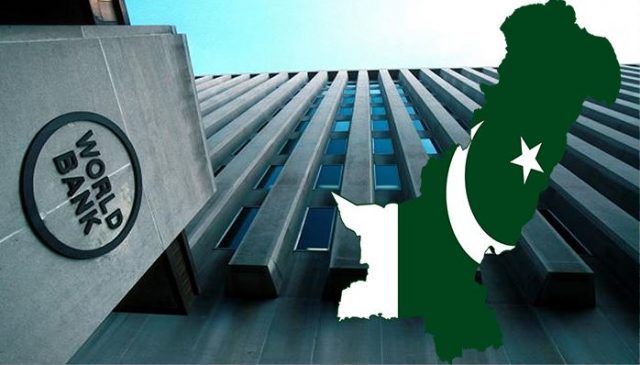ISLAMABAD: The World Bank’s “Integrated Flood Resilience and Adaptation Project” (IFRAP), valued at $213 million, is poised for restructuring to enhance the swift disbursement of funds allocated for resilient housing reconstruction and restoration efforts in Pakistan.
Official documents indicate that IFRAP, signed on July 3, 2023, is designed to revive and improve the livelihoods of communities affected by the devastating floods of 2022, while bolstering their capacity to withstand future extreme flooding. To date, the project has disbursed approximately $22.38 million, with a closing date set for December 31, 2028.
The project aims to restore critical services such as housing, water and sanitation, transportation, agriculture, and irrigation, while laying the groundwork for long-term flood resilience through enhanced institutional and informational frameworks.
IFRAP comprises six components, including a Contingent Emergency Response element focused on rehabilitation and resilience in flood-damaged areas, particularly in Balochistan. The Ministry of Planning Development and Special Initiatives (MoPDSI) serves as the implementing body, supported by a Federal Project Management Unit (FPMU) based in Islamabad, with much of the implementation taking place in Balochistan.
To streamline project execution, the proposed restructuring includes adjustments to the withdrawal categories in Section III of the Second Schedule of the Financing Agreement and revisions to the Disbursement and Financing Instruction Letter (DFIL). This will facilitate the establishment of a designated account for Housing Reconstruction Unit (HRU) activities.
The incorporation of the HRU under the IFRAP will necessitate the opening of a separate designated account, which will require distinct Interim Unaudited Financial Reports (IUFR) and annual financial statements. A dedicated Financial Management Specialist (FMS) will oversee the HRU’s functions, providing oversight and ensuring proper documentation of expenditures.
Additionally, a new HRU has been established in Quetta, functioning as an extension of the FPMU to implement Component 3, which focuses on housing reconstruction and restoration. The HRU will manage and monitor the performance of implementing partners, who are in the final selection stages.
The HRU will also collect Damage Assessment and Verification (DAV) data from implementing partners, conduct spot checks, and oversee the technical inspections necessary for releasing housing reconstruction subsidy grants. Centralized bank accounts will be set up in commercial banks of the beneficiaries’ choosing to facilitate direct transfers of housing reconstruction grants, eliminating the need for third-party involvement.
This restructuring aims to establish a robust financial management system specifically for the housing subsidy, anticipated to involve over half a million small transactions.
Currently, the DFIL restricts the establishment of a separate designated account for the HRU, requiring all disbursements to pass through the FPMU. This centralized approach could lead to inefficiencies and delays in fund distribution.
Amending the withdrawal categories and updating the DFIL will grant the HRU direct access to funds, resulting in a more streamlined financial management system. This change will empower the HRU to operate more independently, allowing for quicker responses to the project’s demands and enhancing the overall efficiency of Component 3’s implementation. The proposed amendments will align the financial management structure with the operational needs of the HRU.




